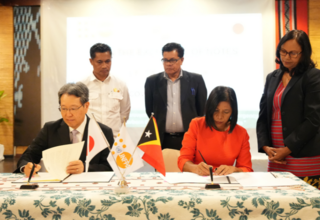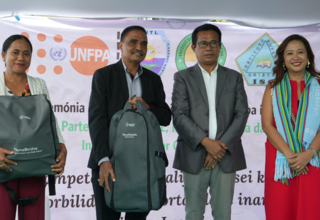Statement by Dr. Babatunde Osotimehin, Executive Director of UNFPA, the United Nations Population Fund, on World AIDS Day, 1 December 2016
HIV prevention goes beyond access to services - it's about more inclusive societies
It is past time to get serious about HIV prevention. We cannot hope to end the AIDS epidemic when every day almost 6,000 people are infected with HIV.
Progress on prevention has stagnated. Since 2010, the annual number of new infections among adults has remained unchanged.
Antiretroviral treatment has reached more than 18 million people in 2016 and has saved millions of lives and reduced the risk of new infections. But treatment alone cannot stop the spread of HIV.
We know what to do, and we know how to do it better: governments, communities and international partners must scale up investments in behavioural, medical and policy interventions, which together can dramatically bolster prevention.
Access to quality, rights-based sexual and reproductive health information and services, including condoms, is critical.
But prevention goes beyond access to services. It must include actions that reduce risk among vulnerable populations, such as adolescent girls. A girl who is protected from child marriage, has access to comprehensive sexuality education and is empowered to finish her education is at less risk of HIV infection. This contrasts with a girl who is forced to partner with an older man, who is kept out of school and remains poor and has no access to information about her body. Actions that lead to more inclusive societies can reinforce prevention efforts by eliminating the fear some groups may experience in seeking prevention services.
Through the Sustainable Development Goals, the international community committed to ending the AIDS epidemic by 2030. This target will be reached only with a concerted and strengthened focus on prevention. On this World AIDS Day, UNFPA commits to mobilizing partners and resources for a global scale-up of comprehensive prevention efforts in 2017.



